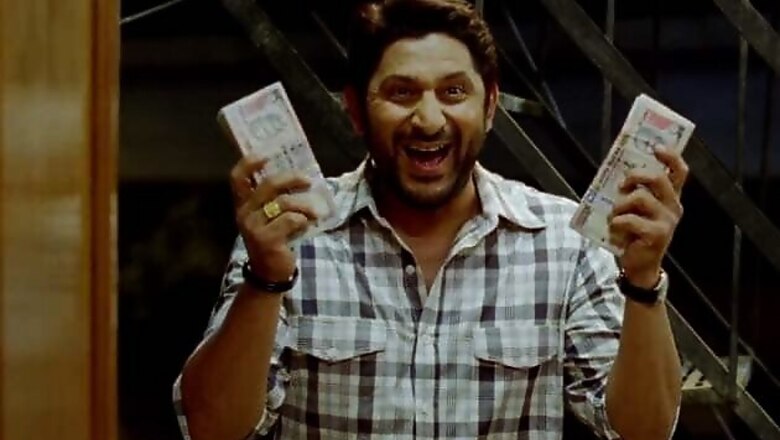
views
New Delhi: In an ideal world, the poor rarely ever get justice. In cinema however, the underdog crusader usually finds redemption. Almost 15 years after a businessman's speeding BMW mowed down six people on Lodhi road in New Delhi, Subhash Kapoor's film Jolly LLB strikes a raw nerve in a nation accustomed to rampant corruption pervading Indian judiciary.
However elusive justice is in real life, in a film set in the grimy perimeters of session courts, there is at least a shot at vindication. Arshad Warsi, playing Jolly Tyagi, a law graduate from the Meerut Law College, takes on a Goliath of a lawyer in Tejinder Rajpal, played by Boman Irani.
As Jolly tries to piece together the evidence in the infamous Land Cruiser case in which businessman Rahul Dewan is said to have mowed down six people while driving drunk one night, his opponent Rajpal prepares the water tight defense that will exonerate his wealthy client.
While it's all right to cheer the Indian judiciary in cinema for its role as the protector of the downtrodden, in real life, justice for the rich is another matter, as is proven in the Sanjeev Nanda case.
Nanda, a businessman and the son of Suresh Nanda, an Indian arms dealer, was convicted for running over six people on January 10, 1999. Nanda was in an inebriated state when he killed six people including three policemen.
The Supreme Court let off Nanda without an additional jail term after he served
two years. Nanda had to pay Rs 50 lakh to the Union Government as compensation for the victims and do two years of community service.
But for the family of one of the victims - homeguard Peru Lal - it's a pittance. In August last year, they told CNN-IBN they were tired and did not want to fight the case any longer.
Peru Lal, a father of three, was killed in the drunk driving incident. Fourteen years on, his wife Phula Devi still fought tears while recounting the night when she received the news of her husband's death.
Nanda was sentenced to two years in prison, but the Supreme Court denied the Delhi police's appeal for a longer sentence. Peru Lal's family is tired and worn out. They said they neither had the means nor the energy to take the case forward.
The Delhi High Court had in July 2009 reduced Nanda's sentence from five to two years after holding that he could not have had the knowledge that a tragedy could strike by his rash and negligent driving.
Even though the film tends to simplify a complex socio-economic problem and glorifies court procedures that normally take years to resolve, it does drive home a point, however 'feel good'. In the age of a wave of socially conscious cinema, the media decides the reach of the content. It forces people who would otherwise go scot free to be accountable if not accept blame.
On February 7, 2013, a Magistrate observed while charging Salman Khan with the more serious offence of culpable homicide not amounting to murder in a decade-old hit-and-run case, that the actor had knowledge that his act of rash driving would result in death or injuries to people.
Salman was warned by his police bodyguard Ravindra Patil not to drive at a speed of 90 to 100 km per hour as there was a turning ahead or else the vehicle would meet with accident but he did not pay heed to his advice, Additional Chief Metropolitan Magistrate VS Patil noted in his order.
Junior lawyers struggle to each day what Jolly achieves in cinema - of getting their less privileged clients a day in court. Conscientious cinema in needed, if only to contrast with life's grim realities.




















Comments
0 comment